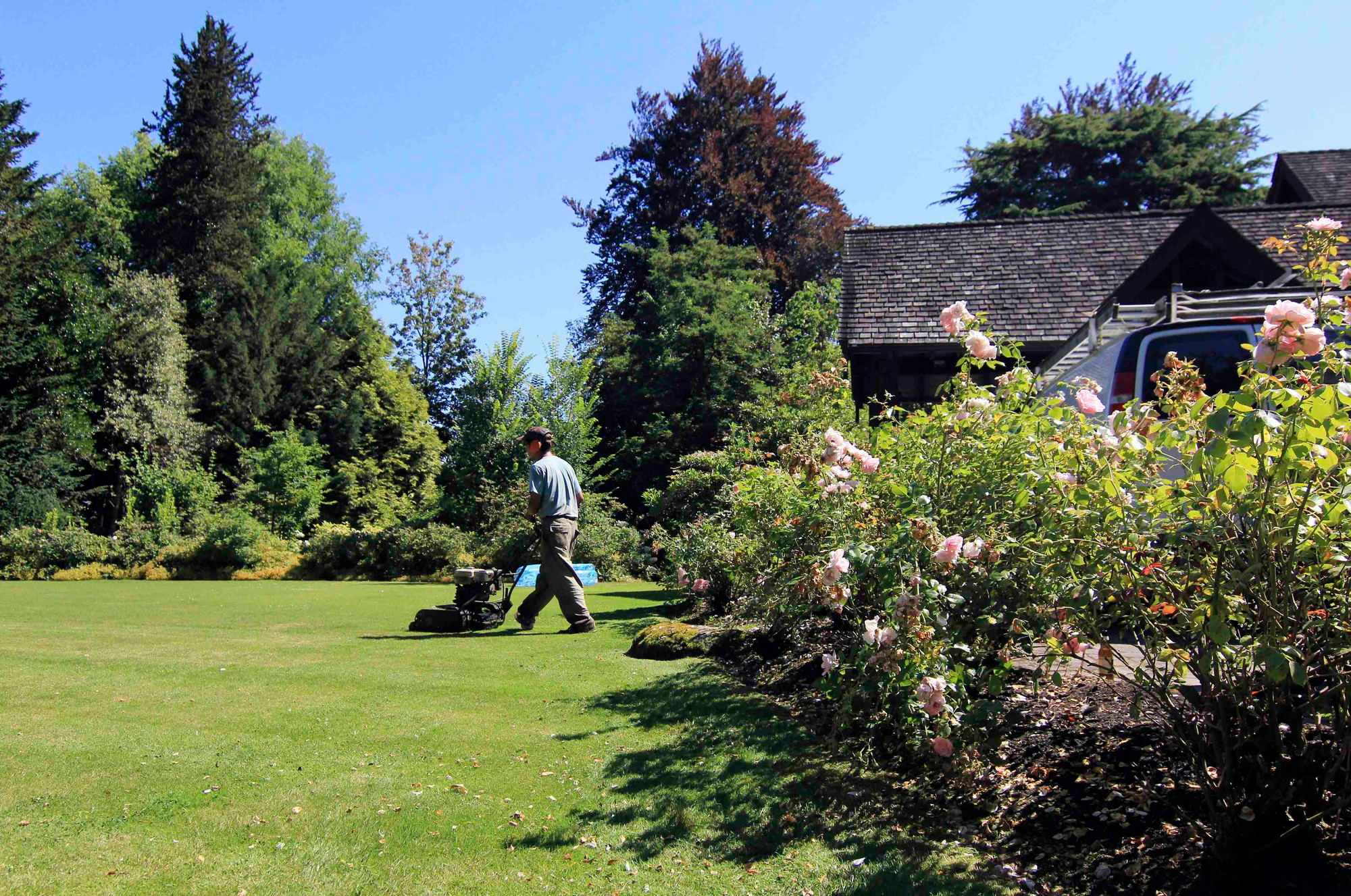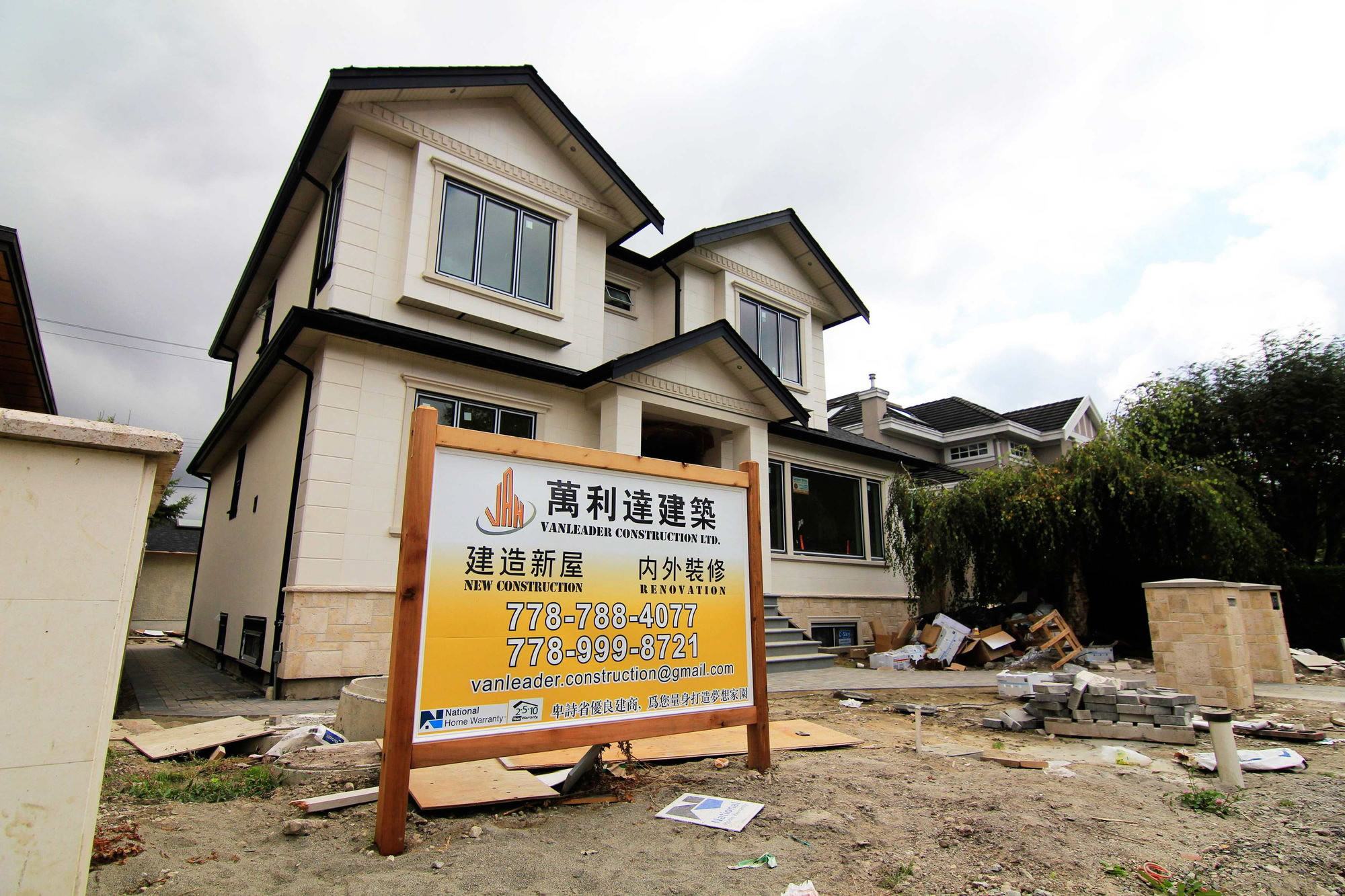
Business
11:50, 27-Jan-2017
Vancouver becomes one of world's most unaffordable cities for housing
Updated
10:38, 28-Jun-2018

Vancouver has been named one of the world's most unaffordable cities for housing, according to an annual international study.
Vancouver is Canada's third-largest metropolitan center and home to about 2.5 million people. The West Coast city ranked third on the 2017 Demographia International Housing Affordability Survey. Vancouver ranked second overall last year.
Demographia compares 406 metropolitan housing markets in nine countries, including Canada, China, Australia, Ireland, Japan, New Zealand, Singapore, the United Kingdom, and the United States.
The report, now in its 13th year, links median house prices to median household incomes, for a so-called median multiple. Vancouver's median multiple is 11.8. A value of 3.0 or less is considered affordable.

A caretaker does yard work outside a English-style mansion listed for C$17.9 million ($16.3 million) in Vancouver's historic First Shaughnessy neighbourhood July 16, 2014. /CFP Photo
A caretaker does yard work outside a English-style mansion listed for C$17.9 million ($16.3 million) in Vancouver's historic First Shaughnessy neighbourhood July 16, 2014. /CFP Photo
The findings blasted Vancouver as having the worst housing affordability in all of Canada, rating the city as "severely unaffordable".
Since 2004, Vancouver's median multiple climbed from 5.4 to 11.8.
This year's study also said that more people moved out of Vancouver last year than moved in.
Only Hong Kong, and Sydney, Australia were rated as more unaffordable than Vancouver, with a median multiple of 18.1 and 12.2, respectively.
Vancouver was trailed on the list by cities such as: Santa Cruz, California (11.6); Santa Barbara, California (11.3); Auckland, New Zealand (10.0); San Jose, California (9.6); Melbourne, Australia (9.5); and Honolulu, Hawaii (9.4).
The study called for governments to take action to address housing prices and it placed significant blame of deteriorating conditions on urban containment policies, which limit urban expansion.
"We should not accept extreme price levels in our housing markets," wrote Oliver Hartwich in the forward of the report. He is the executive director of the New Zealand Initiative, a think-tank focused on housing affordability.
"High house prices are not a sign of city's success but a sign of failure to deliver the housing that its citizens need," he said.
Vancouver has a reputation as a highly livable and safe city, with a clean environment, natural beauty and good schools. But the cost of housing has been at a crisis level in recent years.
The overall vacancy rate for purpose-built rental housing is now 0.7% in Metro Vancouver, according to the Canadian Mortgage and Housing Corporation (CMHC). Meanwhile, the average rent for a home in the region climbed to 1,223 Canadian dollars (933 U.S. dollars), up six percent over last year.

A contractor's sign stands outside a mansion currently under construction in a Vancouver neighbourhood popular with Chinese buyers in this file photo from September 9, 2014. /CFP Photo
A contractor's sign stands outside a mansion currently under construction in a Vancouver neighbourhood popular with Chinese buyers in this file photo from September 9, 2014. /CFP Photo
As part of its strategy to ease investor speculation in the Metro Vancouver housing market, the provincial government last year enacted a 15 percent tax on the purchase of homes by foreigners. The effects of that policy on the region's housing market remains unclear.
The cost of housing puts a strain on people who work in the city, including some of its most important workers. The Vancouver Fire Department employs about 800 uniformed staff, most of whom can't afford to live in Vancouver proper, said Vancouver Fire and Rescue spokesman, Capt. Jonathan Gormick.
Instead, they must commute in heavy traffic from nearby cities, he said.
"It is challenging and we do have restrictions on how far out of the city the majority of our staff can live," he told Xinhua this week. He said 70 percent of fire department staff must live within a boundary including Vancouver's neighbouring municipalities.
"That's to make sure that in a large emergency that we can get enough staff to respond for call-out if needed."
"It's difficult when we work in a city that is highly desirable to live in because of climate and because of location, but Vancouver is also extremely limited in the amount of property it has," he said.
"We don't have the ability to sprawl like a lot of other cities do, like for example Calgary or Ottawa. We're limited on three sides by water, and of course the [U.S.] boundary on the other side," he added.
(Source: Xinhua)
8532km

SITEMAP
Copyright © 2018 CGTN. Beijing ICP prepared NO.16065310-3
Copyright © 2018 CGTN. Beijing ICP prepared NO.16065310-3